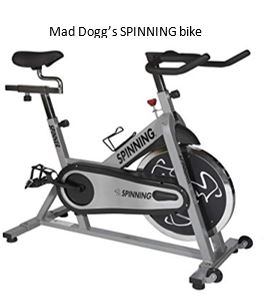03/12/2018
Purpose of a trade mark and what happens if it becomes generic?
The essential function of a trade mark is to distinguish the origin of goods and services of one undertaking from those of another undertaking. A registered trade mark gives the owner a monopoly right that prevents others from freely using the same or similar mark.
If a trade mark is used to the extent that it becomes generic and is used in trade to stand for the actual product or service, it ultimately fails to fulfil its essential function, and should therefore be left free for others to use.
A trade mark can only be cancelled on grounds that it has become a generic term if two conditions are met (under Article 51(1)(b) EUTMR):-
- It must be objectively established that the trade mark has become the common name in the trade for the product or service in respect of which it is registered; and
- The loss of distinctive character of the trade mark must have occurred in consequence of acts or inactivity of the trade mark proprietor
Background
In April 2000, Mad Dogg Athletics, Inc obtained registration of the word mark SPINNING in the European Union for goods and services:-
- class 9 “audio and video cassettes”
- class 28 “exercise equipment”
- class 41 “exercise training”
For the gym-goers amongst us, the term “SPINNING” is well-known. People tend to know and refer to “SPINNING” as an indoor cycling class that is led by an instructor. The classes vary according to intensity, tempo and general format. It is normally a guaranteed high intensity class with loud music, calls from the instructor constantly telling you to “turn up your resistance”, a lot of sweat and jelly legs afterwards.
Mad Dogg claims to have trained over 200,000 SPINNNG instructors worldwide, with 46,528 certified instructors in Europe between 2002 to 2012.
Do those partaking in the classes or the gym traders putting on those classes know that the term “SPINNING” is in fact a trade mark of origin and not just a term used as the name of an exercise class?
The EU Court has held that it is now, the latter. The term “SPINNING” is generic because it has been used to the extent that it is now a common name for a type of exercise training and the exercise equipment used in this training.
Whilst the term “SPINNING” might once have been held distinctive enough to function as a trade mark, it no longer is and should be a term that is free for others to use.
There are some interesting points that came from this decision, particularly for owners of EUTMs and the potential risk of losing their EUTM for any reason, if they do not vigilantly protect and enforce their rights across the European Union. It also raises a serious point about the need for trade mark owners to properly control and police its authorised licensees’ use of their trade marks.
Cancellation Action against EU trade mark SPINNING
Mad Dogg’s word mark SPINNING was registered in the EU for 12 years until it became subject to a cancellation action by Aerospinning Master Franchising Ltd.
Aerospinning argued that suggestive terms such as “SPINNING” are particularly suitable for adoption as the common name in the trade for an entire class of product or services because they already evoke or allude to the goods and services for which they are registered.
The EUIPO Cancellation Division agreed and held that the term “SPINNING” is suggestive for “exercise training” and of “exercise equipment” because parts of the equipment used, such as the pedals, do rotate, and lead to the idea that ‘spinning’ is somehow linked to the activity itself.
The trade mark registration was cancelled in its entirety (despite Aerospinning only targeting classes 28 and 41 and not class 9).
Mad Dogg appealed against that decision to the EU Board of Appeal, and subsequently to the EU General Court. At both instances, Mad Dogg was unsuccessful, though the Board of Appeal did allow them to keep the class 9 goods.
Factors to consider when establishing whether a mark has become generic in the European Union
- Sufficient that a trade mark is generic in only one part of the European Union to be cancelled
- It doesn’t need to be considered generic across the entire European Union
- The cancellation applicant can therefore focus its evidence in one country where it might think the trade mark is most likely to be considered generic
- It doesn’t need to file evidence in multiple or all countries of the European Union
- The assessment is at the date on which the cancellation action is filed
- Any evidence and/or conduct of the trade mark owner after that date is irrelevant
- The perception of the end user plays a decisive role in the assessment of whether the mark has become a common name for a product or service
- The burden of proving that the mark has become generic and is no longer distinctive lies with the person seeking to cancel the registration (the cancellation applicant)
- Would the EUIPO accept the mark for registration if it was filed today? If not, the view is it shouldn’t really be allowed to remain registered even if it was once accepted.
Evidence filed in the proceedings
… to satisfy condition #1 of Article 51(1)(b) EUTMR – trade mark has become the common name in the trade for the product or service in respect of which it is registered
- Aerospinning instructed an independent company to conduct a media analysis, monitoring the use of the term “SPINNING” by media organisations active on the Czech market in 2011
- The focus was on whether “SPINNING” was used in a generic context, as a kind of sport activity, or as a brand name
- The Cancellation Division held this evidence was “both directly relevant and glaringly clear” that the vast majority of references to the term “SPINNING” use the term as a type of exercise activity and in no way indicate that the mark is proprietary
- Internet discussion forums and popular media showed that the term “SPINNING” was often used in an identical manner to other types of fitness or exercise training such as yoga, dancing, tennis and such like
- The term SPINNING was referred to in a number of Czech language dictionaries
- Traders and commercial entities use the mark “SPINNING” generically to refer to a ‘spinning bike’ or ‘shoes for spinning’
- Variations of the word are used such as ‘spinbikeclub’ or ‘spinfit’ or ‘SPIN+CORE’
- Which suggest that competitors are trying to put their own marketing twist to what they consider a generic term to refer to a sporting activitythe term “SPINNING” is used as part of the name of businesses describing the type of business activity they’re involved with
- The Czech trade mark office even accept the term “SPINNING” in the specification of goods and services for which a mark can be registered. There were a total of 47 trade marks that include the term “SPINNING” as part of their goods or services.
- Only a handful of articles made reference to Madd Dog or its licensees
The evidence filed by Aerospinning focused on the Czech Republic so the relevant public in the assessment was considered to be the Czech speaking part of the EU.
The evidence indicated that a substantial part of the relevant Czech public do not perceive the term “SPINNING” as an indication of origin, but instead a type of exercise training. It doesn’t matter that the Czech population apparently only accounts for 2% of the total EU population, it still accounts for a “part of the European Union”.
The Cancellation Division held that “SPINNING” has become the common name in trade on the Czech market as a type of exercise training and the exercise equipment used in this training.
The EU Board of Appeal further commented that even Mad Dogg’s use of its logo on training equipment does not ensure that just the word element, on its own is also perceived as a trade mark.
Evidence filed in the proceedings
… to satisfy or rebut condition #2 of Article 51(b) EUTMR – the loss of distinctive character of the trade mark must have occurred in consequence of acts or inactivity of the trade mark proprietor
Did Mad Dogg do enough to protect the distinctive character or its trade mark SPINNING?
- It is necessary to look at the evidence as a whole,
- Assess the owner’s inactivity against a possible range of actions it could have taken, and
- In light of the relevant public and the owner’s degree of knowledge, can it be deduced whether the owner’s acts or inactivity was reasonable or not ?
The Cancellation Division held that Mad Dogg failed to vigilantly protect its trade mark “SPINNING”.
- Mad Dogg did not sufficiently police or control its authorised licensees’ use of the mark “SPINNING”
- They appeared to freely use the term in multiple variations, as nouns and as verbs eg. ‘bodyspinning’ / ‘classic spinning lessons’ / ‘why come to spinning’,
- No references made to the ® registered symbol, or to the trade mark owner, and
- No stringent control of the trade mark usage guidelines
- Mad Dogg ought to have taken more action to prevent its licensees from using the mark in such a way, and it would not have been overly burdensome to do so
- Mad Dogg claimed it had no legal recourse against some uses of the mark such as on internet forums or in the media, but whilst no specific cause of action is available, they could / should have sent warning letters to news organisations or media outlets
- The fact that Mad Dogg took action over 700 times in Germany alone and was successful in 50 court cases in enforcing its rights in the mark “SPINNING”, was not strictly relevant and did not prove if they had taken enough action – the relevant part of the public was the Czech Republic
- Mad Dogg sent only 20 warning letters in the Czech Republic before the cancellation action was filed. This was not enough, they should have been more proactive in protecting and enforcing their rights in the Czech Republic as they had done elsewhere
- Mad Dogg admitted it is hard to police the increasing number of infringing and generic uses of the term “SPINNING”
The Cancellation Division held that Mad Dogg had failed in its reasonable duties to be vigilant to the protection of the distinctive character of the trade mark SPINNING on the Czech market. Through Mad Dogg’s inactivity to protect its trade mark, SPINNING became the common name for a type of exercise training and exercise equipment given that it will be used in the activity of spinning
[Case references: EUIPO Cancellation Division C6281, dated 21 July 2014; EU Board of Appeal R 2375/2014-5 dated 21 July 2016; EU General Court T/718/16 dated 8 November 2018]
This article is for general information only. Its content is not a statement of the law on any subject and does not constitute advice. Please contact Reddie & Grose LLP for advice before taking any action in reliance on it.

